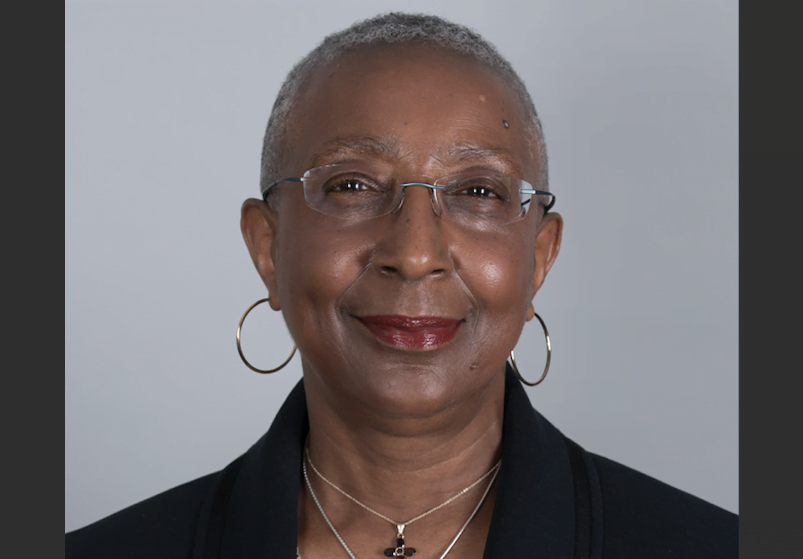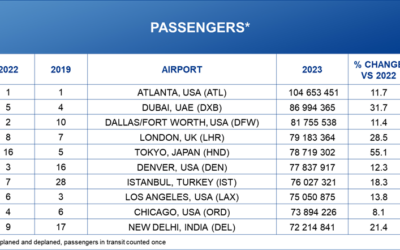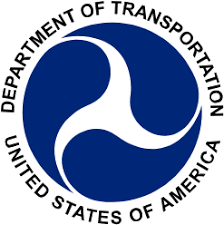Editor’s Note: Angela Gittens has been through disruptions to the aviation industry before, both as the director at two large U.S. airports, as an industry consultant and, now, as director general of Airports Council International – World.
She’s seen September 11, multiple pandemics and recessions devastate regional, national and world economies, but nothing quite as drastic as COVID-19.
Gittens joined AXN writer Andrew Tellijohn in mid-April to discuss what airports can draw from those past experiences as they weather the near-complete disappearance of air travel, what a recovery might look like and how the industry could work with world health organizations to ensure that a situation like this doesn’t happen again.
A more comprehensive interview with Gittens will appear in the May/June issue of Airport Experience News.
Tellijohn: You’ve been around through 9/11, SARS, H1N1, etc. How does this compare, and how do you prepare to recover from something with no obvious ending?
Gittens: I think the difference between this and 9/11 is that this is worldwide. Also, 9/11 was 2001, 19 years ago. Think about both the growth of aviation and the pervasiveness of aviation. Where was China in terms of travel 19 years ago? Where was India? Where was Africa? Where were Latin America and the Caribbean in terms of how dependent they were on air transportation, how global were all the supply lines 19 years ago?
So, although 9/11 was devastating and dramatic in terms of impact in North America and Western Europe, it didn’t have quite the same impact to Asia and Africa. It had a bigger impact in the Caribbean, because the Caribbean markets are so dependent on the U.S., and had some impact in Latin America…. This is everywhere.
The other difference is back then the United States was very engaged with other countries. Countries talked to each other about what to do. Countries tried to figure out security regimen. Although for airports it was quite disruptive, there was a lot of communication among different countries recognizing what country X’s protocols were compared with country Y’s. You don’t do this [in the U.S.] yet. So, as countries reacted to the outbreak, they all did something different. Even now, we’re not seeing a whole lot of communication and effective engagement, a lot because of the uncertainty. We don’t know how long it is going to last.
I liken this more to how people felt in World War II. They were on rations, at least in North America. Their husbands were overseas, they didn’t know if their husbands were going to live or not. They didn’t know how long it was going to last. They didn’t know what the outcome was going to be. There was nothing to say your side was going to win. In some ways it’s more like that.
Tellijohn: The other thing about 9/11 was that it happened but then ended. There’s no end date in site here.
Gittens: The other thing with the World War II analogy, look at what happened during the war. ICAO was formed. You started seeing institutions to deal with the new normal. I was very impressed to find out that ICAO was developed while the war was still going on, that there was a recognition that there would need to be a global set of rules for aviation, because otherwise it wouldn’t work. And we’re in that exact situation right now, in that if countries don’t somehow engage with one another, how are we going to have international aviation?
Tellijohn: The general consensus seems to be that domestic travel will return faster than international travel. Do you agree?
Gittens: Absolutely. You already see it in China, they’re starting to come back. South Korea has a pretty strong domestic market, but none of the other large or large-ish traffic markets have advanced in terms of the virus yet for us to see how that works out.
There are two things that are going to affect the recovery in terms of travel. First is the virus, and then connected to that [is] recession. Depending on how long the virus lasts and depending on how long the virus lockdowns and restrictions and border closings last, and depending on what governments do for businesses and individuals in terms of mitigating the financial impact will determine how long the recession lasts. The recession could have a pretty big impact on travel.
Tellijohn: As people discuss the “new normal” that might grow from this, do you have any thoughts on what that might look like?
Gittens: It’s very clear to me that aviation, and businesses in general, has to develop engagement with health authorities. We know this – it’s in all policies at ACI, this shows the importance, because this is not going to be the last thing that happens. And, in fact, this particular thing may happen again.
I think there will be a new normal. There used to be a requirement, it still is in some countries, that would require vaccination certificate. It could be we start having something like a health passport, or it could be something on your passport that denotes that you’ve been vaccinated for this or that or says that you don’t have this or that, again, beyond this particular virus.
Now that this is a generation that has seen what can happen, I think that there will be much more interest in public health, I think it’s been somewhat neglected in many countries, including the U.S., because it’s not a ‘here and now,’ it’s an ‘in the future’ and a ‘maybe,’ – you know, not, not likely to happen. But when it does happen, now you can see how devastating it is.
Tellijohn: Having seen a few of these situations, do you have any you know advice for directors or others who are in the heat of this right now?
Gittens: What I would say to the CEOs is take care of the people. Recognize them as the assets they are, and be sensitive about things like burnout. Airport people will work themselves to death to keep things running. They’re tend to be very dedicated, committed. You want that, but you don’t want them to get sick. Also, we sometimes find that people have one job but can be helpful in some other areas – you can put them in the higher priority areas. In my experience, many of them really shine. You wind up seeing the strength of folks you might not have paid attention to, and they might not have ever had the opportunity to show what they can really do. Look for the opportunities for development in this mess.






